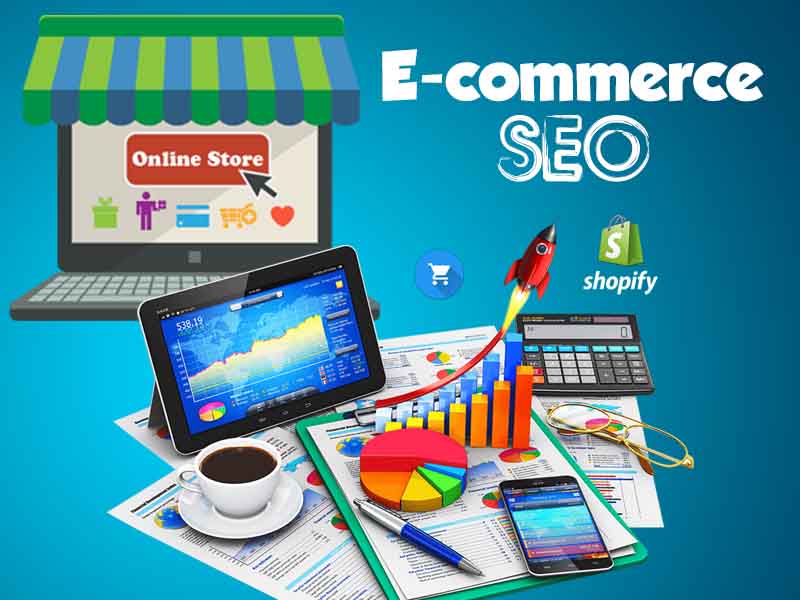E-commerce SEO: Unlock the Potential of Your Online Store
E-commerce has revolutionized how businesses operate, allowing brands to reach a global audience and sell their products 24/7. However, running an online store isn’t just about listing products; it’s about ensuring your target audience can find you amidst stiff competition. This is where E-commerce SEO steps in, helping online stores improve their visibility, drive organic traffic, and boost sales. Let’s dive deep into what e-commerce SEO entails, its benefits, and how you can implement it to grow your business.What Is E-commerce?
At its core, e-commerce (electronic commerce) refers to the buying and selling of products or services through online platforms. It encompasses everything from small local businesses to global retail giants. Key types of e-commerce include:- B2C (Business-to-Consumer): Selling directly to customers, such as online clothing stores.
- B2B (Business-to-Business): Transactions between companies, such as wholesalers selling to retailers.
- C2C (Consumer-to-Consumer): Peer-to-peer platforms, like online marketplaces.
- Digital Products: Non-physical items like software, eBooks, or courses.
What Is E-commerce SEO?
E-commerce SEO involves optimizing your online store to enhance its visibility on search engine results pages (SERPs). It focuses on:- Ranking product and category pages for relevant keywords.
- Driving organic traffic by improving technical, on-page, and off-page elements.
- Enhancing user experience for seamless shopping.
Key Benefits of E-commerce SEO Services
Investing in expert e-commerce SEO services guarantees your store’s success in a competitive online environment. Benefits include:
- Higher Visibility: Get your products in front of potential customers actively searching for them.
- Qualified Traffic: Attract high-intent users ready to make a purchase.
- Increased Revenue: Higher visibility and better usability drive more conversions.
- Long-Term ROI: Organic SEO delivers sustainable growth over paid ads.
- Better Customer Experience: Faster loading times, easy navigation, and clear product information improve user satisfaction.
Core Components of E-commerce SEO
1. Product Page Optimization
Product pages serve as the heartbeat of any e-commerce store SEO ensures these pages rank for relevant searches like:- “Buy online”
- “Affordable for [the specific audience]”
- Write clear, engaging product titles and descriptions that naturally incorporate keywords.
- Use high-quality images and enhance them with detailed alt text.
- Add reviews, ratings, and FAQs for social proof and enhanced usability.
2. Category Page Optimization
Category pages should act as a gateway to your product range. Use keyword-rich titles, meta descriptions, and content to rank for broader terms like:- “Men’s athletic shoes”
- “Kitchen appliances under $500”
3. Technical SEO
Technical SEO is fundamental to any SEO strategy, as it ensures search engines can efficiently crawl and index your site. Key areas include:
- Site Speed: Fast-loading websites boost user retention and rankings.
- Mobile Optimization: Ensure a smooth shopping experience on all devices.
- Schema Markup: Use structured data to enable rich snippets (e.g., product ratings).
- Fix Duplicate Content: Use canonical tags for similar product variations.
4. Local SEO for E-commerce
If your business targets specific regions, local SEO helps you rank for location-based searches like:
- “E-commerce SEO agency London North”
- “Local online stores near me”
5. Content Marketing
Content is a powerful tool for engaging users and driving traffic. Create:
- Blogs: “How to Choose the Perfect [Product]”
- Buying Guides: Top 10 [Product Category] for [Audience/Use Case]
- Seasonal Content: “Best Holiday Deals on [Product]”
6. Off-Page SEO and Link Building
Earn high-quality backlinks from trusted sources to improve your domain authority. Strategies include guest blogging, influencer collaborations, and earning links from industry publications.
E-commerce SEO Challenges and Solutions
- Duplicate Content: Product variations can result in duplicate pages and confusing search engines.
- Solution: Use canonical tags or consolidate variations into a single page.
- Pagination Issues: Large catalogs often involve paginated pages, which can dilute link equity.
- Solution: Implement proper rel=” next” and rel=” prev” tags.
- Out-of-Stock Products: Removing pages for unavailable items can harm rankings.
- Solution: Redirect users to similar products or provide an “email me when back in stock” option.
- Slow Site Speed: A slow-loading site increases bounce rates.
- Solution: Use a CDN, optimize images, and enable caching.
Selecting the Right E-commerce SEO Agency For Your Business
When selecting an e-commerce SEO company, look for:
- Experience in E-commerce: Ensure they understand unique challenges like product optimization and large inventories.
- Tailored Strategies: Avoid generic plans; your business needs a custom approach.
- Proven Results: Check case studies and testimonials.
- Transparent Communication: Frequent progress updates and clear reporting.
Final Thoughts: Why E-commerce SEO Is Essential
E-commerce SEO is no longer optional—it’s a must-have strategy for any business aiming to succeed in the online marketplace. From optimizing product pages to improving technical performance, the right SEO approach drives visibility, traffic, and sales. Whether you’re targeting global markets or focusing on local searches like e-commerce SEO London North, partnering with a reliable e-commerce SEO agency ensures your success. Don’t wait—invest in professional e-commerce SEO services today and watch your online store thrive!
How long does it take to see seo results?
SEO is a long-term strategy. Initial improvements can appear within 2-3 months, but significant gains take 6-12 months.
Can SEO work for niche e-commerce businesses?
Yes! Specialized agencies cater to niches like adult e-commerce SEO or luxury goods, offering tailored solutions
What’s the ROI of e-commerce SEO?
Organic traffic typically has the highest ROI, as it generates ongoing revenue without recurring ad spend.


